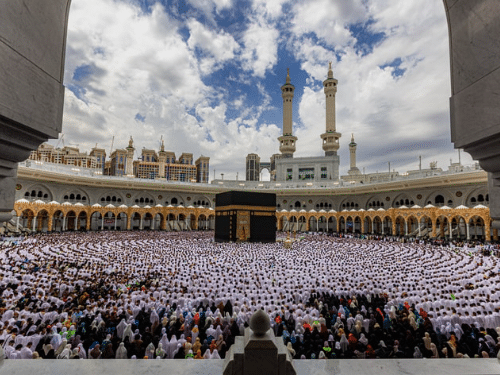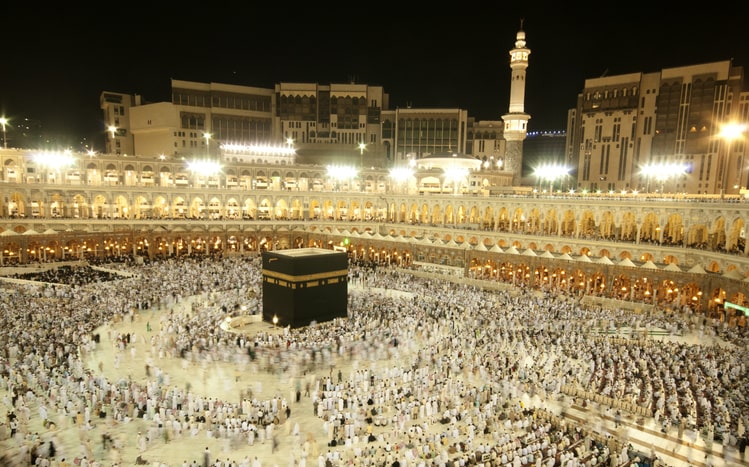Umrah rules for Women
10 Umrah Rules for Women You Should Know
For Muslims around the world, performing Umrah is a spiritually uplifting experience. For women, especially, making this blessed journey has specific rules, customs and announcements based on both religious obligations and cultural considerations. You may travel alone or Hotel accommodation with a Female Group Umrah Package. I even recommend, when possible, joining a group for your own Medinah Group and together as spiritual travel makes for stronger memories.
Here is a guide with the 10 most important Umrah rules that every woman should know before making this sacred journey.
Mahram Rules
Women have always been required to be with a male mahram to make Umrah traditionally. However, new updates have indicated women over 18, when travelling as a group, are not required to have a male mahram, especially if travelling through a Female group, which remains verified. The positive feedback from this decision has provided spiritual travel opportunity to women, around the world, like never before.
Dress Code
A key Umrah rule for women is to wear modest Islamic dress. Women do not have to wear white like men. They need to wear loose fitting attire that is not see-through and covers the body (except the face and hands). While black abayas are popular, any modest colored clothing is allowed.
Face and Hands cannot be covered in Ihram
While modesty is definitely required, women cannot cover their face and hands in the state of Ihram (the sacred state before performing Umrah rituals). It is never permitted for women to wear niqabs or gloves in the state of Ihram. Supposedly, it is permitted for women to use a loose veil to shield their face from unrelated men, provided that they do not touch them.
Entering Ihram
Women must enter Ihram before crossing the Miqat (entry boundary) just like men. Before crossing the Miqat, they will perform ghusl (full body purification), to pray two rakats, and to make the niyyah (intention) for Umrah.
Menstrual period and Umrah
Understood. Probably one of the most frequently asked questions regarding rules for Umrah for women is their menstrual period. A woman is not allowed to perform Tawaf (the circling of the Kaaba) while she is menstruating. However, she is free to engage in du’a (supplication), dhikr (remembrance), and other activities which are not a part of the rites of Umrah, until she has achieved purification and can continue with the rites.
Performing Tawaf and Sa’i
A woman will perform Tawaf and Sa’i (the walking between Safa and Marwah) as a man will, but again it is usually best to avoid busy and crowded areas for safety. There are no rules prohibiting women from being in any part of the mosque, but women will usually have some sort of area or designated location during busy prayer times that will be for women only, just for their comfort and protection.
Trimming Hair
Once a woman has completed Umrah, she is required to trim her hair, and only a small amount approximately at the length of a fingertip. Unlike the men, who may shave their head, women cannot shave their head, and they cannot use scissors to cut the hair, rather they should trim their hair in a private place, usually in their hotel or designated areas.
Avoid Physical Contact with Non-Marham’s
Once you enter Ihram and during the rituals of Hajj and Umrah, women are not permitted to have any physical contact with non-mahram men. This covers handshakes, hugs, and any other physical interaction, or even unnecessary conversation for that matter. Understanding your personal boundaries will help you maintain your focus on spiritual objectives.
Aim to Keep Spiritual Intention
Whether you are performing Umrah alone or as a part of a group female, you should aim to keep your intention (niyyah) solely for the pleasure of Allah. Make assess decisions during sacred rituals and avoid distractions, unnecessary shopping, or sightseeing.
Travel Safely and Stay Informed
Traveling in a group (preferably women-only) can offer extra comfort, safety, and religious guidance along the way. A group female will typically include female scholars to offer knowledge, group support, and arrangements designed for women travelers, so it is often a good decision to book a female-only package.
























